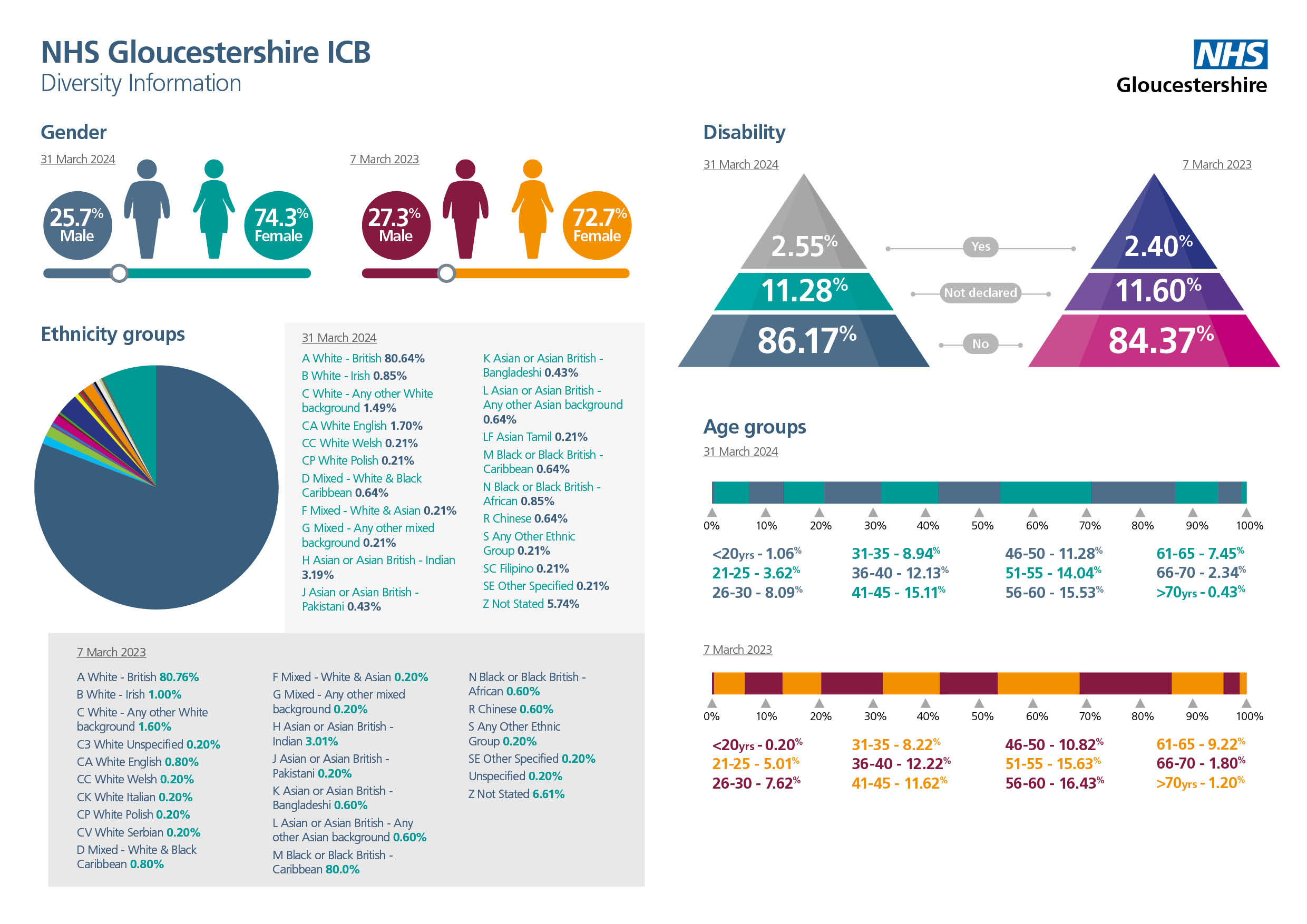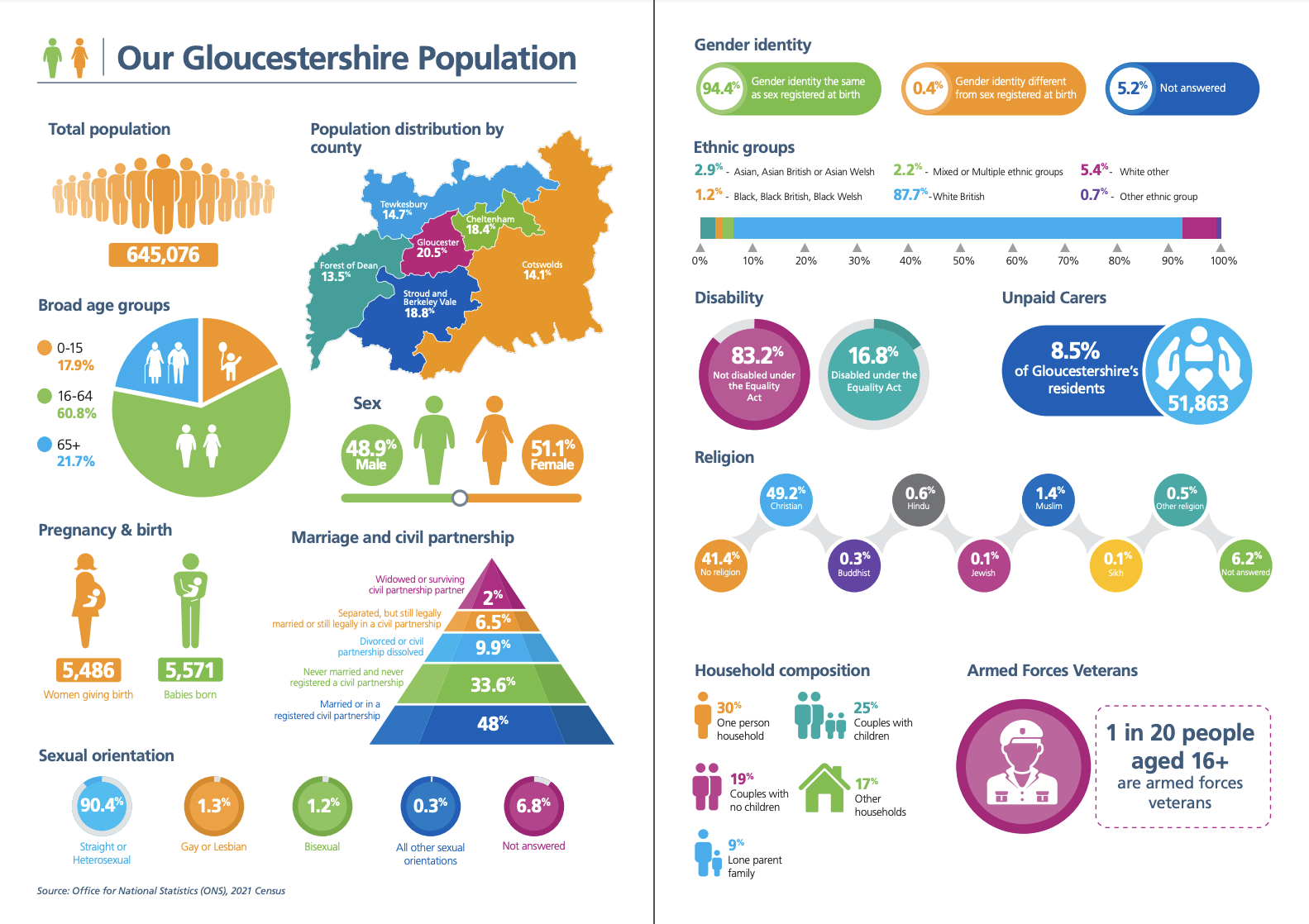Integrated Care Boards (ICBs) have a vital role in tackling inequalities in access to and outcomes from health and social care services.
This section describes some of the mechanisms and processes we have in place to help us tackle inequalities and to ensure we are addressing health and care needs in line with the 9 protected characteristics as part of the Public Sector Equality Duty (PSED) and the Equality Delivery System (EDS), an improvement framework and toolkit designed to assist organisations in assessing their performance and identifying future improvement actions.
The Public Sector Equality Duty & Equality Delivery System Toolkit
These pages will shortly be updated to show the latest data relating to service users and employees (2023/24 data) and our latest equality objectives to evidence our compliance with the Public Sector Equality Duty.
Earlier this year as part of the Integrated Care Board’s Annual Report we published a separate paper “Health Inequalities Information Review Statement” (link opens the report). This report sets out evidence of action and progress on reducing health inequalities across our county, ensuring that we do more for the most disadvantaged groups in our population. You can also access a copy of the report via our publications page.
PSED Duty
The PSED is designed to support ICBs and other bodies to think about equality across our work programme, to identify the major challenges and to agree the actions we will take to tackle them.
The PSED consists of a general duty and specific duties. The general duty requires ICBs to think about how they can prevent discrimination, advance equality and foster good relations. This applies to the services that are provided and commissioned and to the employment of staff. The PSED requires a thorough consideration of the needs of people with each protected characteristics and is therefore different to the focus of the health inequalities duty which includes a focus on geographical inequalities and other non-protected characteristic inequalities.
The specific duty requires the ICB to be transparent about our work on equality and to show how we are meeting the requirements of the general duty. Each year we must publish equality information that demonstrates how we are thinking about equality across the services we provide and commission and the employment of staff.
ICBs should also have one or more published equality objectives, that are specific and measurable and cover a period of up to four years.
Equality Delivery System Toolkit
The NHS Equality Delivery System 2022 is an accountable improvement tool for NHS Organisations in England. Updated EDS Technical Guidance was published August 2022. This is the third version, commissioned by NHS England and supported by the Equality Diversity Council and is a simplified version of EDS2. The EDS comprises eleven outcomes spread across three Domains:
- Commissioned or provided services
- Workforce health and well-being
- Inclusive leadership.
Outcomes are evaluated, scored, and rated using available evidence and are designed to provide assurance or point to the need for improvement. We have recently assessed our position for 2022/23 against the EDS22 framework. A copy of the outcome of the process and the report that we shared with our ICB is available here.
Overview of NHS Gloucestershire’s Workforce Equality Information
Overview of Gloucestershire’s Equality Information
The 2021 Census data information is now available providing us with more accurate and up to date information about the profile of our local population. The infographic below shows our position across the nine protected characteristics.
Equality Objectives
In line with the Public Sector Equality Duty requirements we are required to have one or more published equality objectives, that are specific and measurable and cover a period of up to four years. In recognition of the issue identified through the EDS22 process and drawing upon existing priorities for the ICB, we have set the following 3 equality objectives for the ICB:
- To develop the quality and range of equality and health inequalities data as part of our clinical programmes of work to improve our understanding of the impact of inequalities and the opportunities to take improvement actions.
- To deliver our programme of work in the Core20PLUS5 clinical priority areas.
- To work with system partners across One Gloucestershire on the implementation of the Equality Delivery System to share information, learning and good practice.
We will report on progress on these objectives throughout the coming year.



